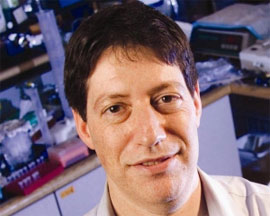Clean energy technologies frequently rely on petroleum-based feedstocks, which are not sustainable in the long term. Now, a new research initiative aims to develop eco-friendly alternatives by utilizing biomaterials for key components such as wind turbine blades and solar photovoltaic modules. This shift could significantly reduce the environmental footprint of renewable energy systems.
According to the New York University Polytechnic Institute (NYU-Poly), Professor Richard Gross, a leading expert in chemical and biological molecular engineering, has received a grant from the National Science Foundation (NSF). He will lead a collaborative effort involving researchers from seven different institutions across the U.S. The goal is to create advanced biopolymers that can replace traditional materials in various clean energy applications.

The development of these materials is expected to take at least five years, as the research involves both material design and real-world testing. Gross explains that current wind turbine blades, for example, are large and difficult to recycle. They typically need to be replaced every 25 years, after which they end up in landfills as non-recyclable waste. If these blades could be broken down and reused through biological or chemical processes, it would greatly reduce environmental harm.
Gross emphasizes that nature’s molecular designs often provide superior performance and sustainability. By mimicking these natural structures, researchers hope to enhance the efficiency and durability of renewable energy components. The composition of the materials used plays a crucial role in determining the performance and longevity of the devices.
This project, titled "Renewable Energy Natural Law" (RENEW), is part of an international collaboration supported by the U.S. National Science Foundation. It focuses on integrating sustainable practices into the production and lifecycle of energy technologies. The initiative also includes educational components aimed at training the next generation of scientists and engineers in green technology.
Through this effort, researchers are working toward a future where clean energy systems are not only efficient but also fully recyclable and environmentally responsible.
Narrow-band filter specifically refers to the band pass filter with narrow half-peak bandwidth. We use ion source assisted medium hard film production technology, so that the film layer is more firm and the spectral performance is more stable.
Narrowband Filter,Laser Speckle Filter,Laser Eye Filter App,Laser Drilled Filter
Changchun Champion Optics Co.,Ltd , https://www.champion-optics.com